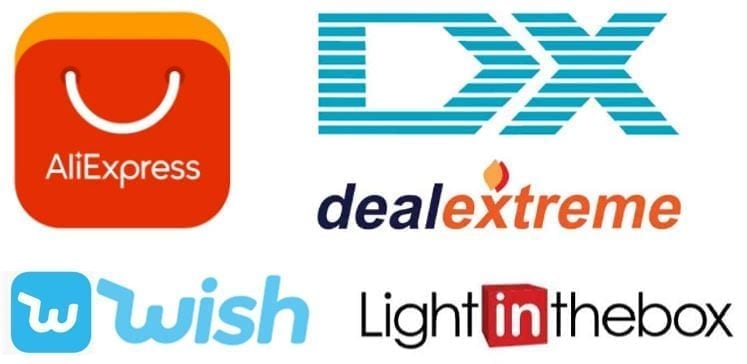Non-European webshops: Retail demands measures against unfair competition
With extremely low prices, products and articles that do not meet European quality and safety standards and purchase conditions that go against European legislation, non-European webshops raise fears in Dutch retail. There is unfair competition, say Detailhandel Nederland and Thuiswinkel.org brotherly. Both physical stores and web shops in the Netherlands are the victims of this.
Better compliance with the rules and stricter enforcement are required to combat unfair competition, both organizations state in their recently published report 'A level playing field for Dutch retailers'. Main reason: digitization has made consumers 'importers'. After all, they purchase directly from non-European web stores and suppliers outside the EU and their parcels sent by post are virtually unchecked. EU laws and enforcement processes, once put in place to ensure product safety, legal protection and correct tax remittance, are completely behind the new digital reality.
Purchases from non-European webshops are increasing rapidly
There are no exact figures yet, but 'direct imports' from countries outside the EU are increasing rapidly, according to Detailhandel Nederland and Thuiswinkel.org. They advocate research by the Dutch government into the exact size of the import flows and their impact on consumers and companies. Because, the rapporteurs say, "All goods entering and sold on EU territory must comply with EU rules, as must all traders who sell products to EU consumers." Direct imports would entail health and safety risks for Dutch consumers. And above all: the Dutch retailer must compete against unfair competition from non-European webshops.
The report includes a graph of countries that are popular with European consumers. It is hardly surprising that China is head and shoulders above this. Since 2017, direct purchases via Chinese platforms such as Wish and AliExpress have skyrocketed. Small electronics, accessories for mobile phones, shoes and clothing are coming in increasing numbers from China to EU countries and therefore also to the Netherlands. It is hardly competitive at low prices. And that's where the shoe pinches: those low prices are mainly possible because Chinese manufacturers and ecommerce platforms bypass the regulations.
Platforms such as AliExpress disturb the playing field
Dutch (web) retailers are particularly concerned about the private import flow from China. In addition, the Chinese Ecommerce platform Aliexpress is being pilloried by the non-European webshops. As a consumer, this fast-growing Alibaba subsidiary does not buy from wholesalers or intermediaries, but directly from the manufacturer. This business-to-consumer principle was initially intended for bulk sales, but now most products can be purchased individually via Aliexpress. Consumers can choose different delivery times. If you opt for sea transport and you take a longer delivery time for granted, you often do not pay shipping costs. Young people in particular are using this en masse.
Retail advocates are not alone in their concerns around platforms like AliExpress. Six European consumer organizations, including the Dutch Consumer Association, have previously asked their national regulators to take action against the ecommerce giant from China. Main argument: faulty and unsafe products are coming onto the market. For example, test purchases from the Danish consumer organization showed that thirty percent of toys imported from China via Aliexpress contained chemicals that are taboo in the EU.
Terms of sale of many non-European webshops deviate from EU rules
An objection that is at least as great is that non-European webshops such as AliExpress have terms and conditions of sale that violate European consumer rules. This includes rules on returns and refunds that have been created within the EU to protect consumers. Lucrative VAT rules also apply to cheaper products and non-European webshops do not pay for Dutch initiatives for the collection and processing of waste. All factors that create an 'uneven playing field'. That hurts within the lines of the already tight margins.
The report by Detailhandel Nederland and Thuiswinkel.org is intended as a signal to Dutch and European politics. It is not an indictment of the global competition inherent in digitization, but a plea for regulation and enforcement that are better suited to the new playing field. So that unfair competition from non-European webshops and platforms is stopped. With an emphasis on the direct import of products from China by consumers who prefer low prices over fast delivery times and guarantees. Whether the signal will take effect soon remains to be seen, as EU legislation often takes longer to arrive than is desirable. We will continue to monitor developments.


